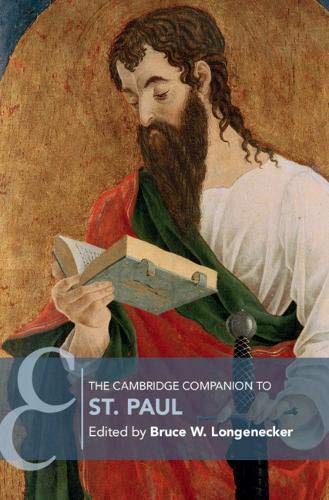


Books in series

#12
The New Cambridge Companion to St. Paul
2020
St Paul was a pivotal and controversial figure in the fledgling Jesus movement of the first century. The New Cambridge Companion to St Paul provides an invaluable entryway into the study of Paul and his letters. Composed of sixteen essays by an international team of scholars, it explores some of the key issues in the current study of his dynamic and demanding theological discourse. The volume first examines Paul's life and the first-century context in which he and his communities lived. Contributors then analyze particular writings by comparing and contrasting at least two selected letters, while thematic essays examine topics of particular importance, including how Paul read scripture, his relation to Judaism and monotheism, why his message may have been attractive to first-century audiences, how his message was elaborated in various ways in the first four centuries, and how his theological discourse might relate to contemporary theological discourse and ideological analysis today.

#17
The Cambridge Companion to American Judaism
2005
This Companion provides readers with a comprehensive introduction to the most important and interesting historical and contemporary facets of Judaism in America. Written by twenty-four leading scholars from the fields of religious studies, history, literature, philosophy, art history, sociology, and musicology, the survey adopts an inclusive perspective on Jewish religious experience. Three initial chapters cover the development of Judaism in America from 1654, when Sephardic Jews first landed in New Amsterdam, until today.

#24
The Cambridge Companion to Modern Jewish Philosophy
2007
Modern Jewish philosophy emerged in the seventeenth century, with the impact of the new science and modern philosophy on thinkers who were reflecting upon the nature of Judaism and Jewish life. This collection of essays examines the work of several of the most important of these figures, from the seventeenth to the late-twentieth centuries, and addresses themes central to the tradition of modern Jewish philosophy: language and revelation, autonomy and authority, the problem of evil, messianism, the influence of Kant, and feminism. Included are essays on Spinoza, Mendelssohn, Cohen, Buber, Rosenzweig, Fackenheim, Soloveitchik, Strauss, and Levinas. Other thinkers discussed include Maimon, Benjamin, Derrida, Scholem, and Arendt. The sixteen original essays are written by a world-renowned group of scholars especially for this volume and give a broad and rich picture of the tradition of modern Jewish philosophy over a period of four centuries.

#30
The Cambridge Companion to John Henry Newman
2009
John Henry Newman (1801–90) was a major figure in nineteenth-century religious history. He was one of the major protagonists of the Oxford or Tractarian Movement within the Church of England whose influence continues to be felt within Anglicanism. A high-profile convert to Catholicism, he was an important commentator on Vatican I and is often called 'the Father' of the Second Vatican Council. Newman's thinking highlights and anticipates the central themes of modern theology including hermeneutics, the importance of historical-critical research, the relationship between theology and literature, and the reinterpretation of the nature of faith. His work is characterised by two elements that have come especially to the fore in post-modern theology, namely, the importance of the religious imagination and the fiduciary character of all knowledge. This Companion fills a need for an accessible, comprehensive and systematic presentation of the major themes in Newman's work.

#31
The Cambridge Companion to John Wesley
2009
A leading figure in the Evangelical Revival in eighteenth-century England, John Wesley (1703–1791) is the founding father of Methodism and, by extension, of the holiness and Pentecostal movements. This Cambridge Companion offers a general, comprehensive introduction to Wesley’s life and work, and to his theological and ecclesiastical legacy. Written from various disciplinary perspectives, including history, literature, theology, and religious studies, this volume will be an invaluable aid to scholars and students, including those encountering the work and thought of Wesley for the first time.

#36
The Cambridge Companion to Thomas More
2011
This Companion offers a comprehensive introduction to the life and work of a major figure of the modern world. Combining breadth of coverage with depth, the book opens with essays on More's family, early life and education, his literary humanism, virtuoso rhetoric, illustrious public career and ferocious opposition to emergent Protestantism, and his fall from power, incarceration, trial and execution. These chapters are followed by in-depth studies of five of More's major works Utopia, The History of King Richard the Third, A Dialogue Concerning Heresies, A Dialogue of Comfort against Tribulation and De Tristitia Christi and a final essay on the varied responses to the man and his writings in his own and subsequent centuries. The volume provides an accessible overview of this fascinating figure to students and other interested readers, whilst also presenting, and in many areas extending, the most important modern scholarship on him.

#37
The Cambridge Companion to Miracles
2011
The miracle stories of the founders and saints of the major world religions have much in common. Written by international experts, this Companion provides an authoritative and comparative study of miracles in not only Hinduism, Islam, Buddhism, Christianity and Judaism, but also, indigenous religions. The authors promote a discussion of the problems of miracles in our largely secular culture, and of the value of miracles in religious belief. The miracles of Jesus are also contextualized through chapters on the Hebrew Bible, classical culture to the Romans, Second Temple and early rabbinic Judaism and early Christianity. This book provides students with a scholarly introduction to miracles, which also covers philosophical, medical and historical issues.

#39
The Cambridge Companion to Francis of Assisi
2011
Francis of Assisi (1181/82–1226) was one of the most vibrant and colourful personalities in the Middle Ages. The life of this remarkable reformer of the medieval Church was celebrated in art, drama, poetry, music, the new vernacular literature and architecture. His ideal was to enter into a restorative and enriching relationship with Jesus Christ, whom he wished to imitate in the most perfect manner, a direct and immediate goal which captured the contemporary imagination. This Companion explores the life of Francis of Assisi and his enduring legacy throughout the centuries. The first part concentrates on his life and works whilst the second explores the way in which his heritage influenced the apostolic activities of his followers in the century following his death. This book is a must-read for students and scholars of Church history, as well as medieval social and intellectual history.

#41
The Cambridge Companion to Black Theology
2012
This volume discusses normative theological categories from a black perspective and argues that there is no major Christian doctrine on which black theology has not commented. Part One explores introductory questions such as: what have been the historical and social factors fostering a black theology, and what are some of the internal factors key to its growth? Part Two examines major doctrines which have been important for black theology in terms of clarifying key intellectual foci common to the study of religion. The final part discusses black theology as a world-wide development constituted by interdisciplinary approaches. The volume has an important role in bringing Christian thought into confrontation with one of the central challenges of modernity, namely the problem of race and racism. This Companion puts theological themes in conversation with issues of ethnicity, gender, social analysis, politics and class and is ideal for undergraduate and graduate students.

#44
The Cambridge Companion to the Cistercian Order
2012
This volume presents the composite character of the Cistercian Order in its unity and diversity, detailing the white monks' history from the Middle Ages to the present day. It charts the geographical spread of the Order from Burgundy to the peripheries of medieval Europe, examining key topics such as convents, liturgy, art, agriculture, spiritual life and education, providing an insight into Bernard of Clairvaux's life, work and sense of self, as well as the lives of other key Cistercian figures. This Companion offers an accessible synthesis of contemporary scholarship on the Order's interaction with the extramural world and its participation in, and contribution to, the cultural, economical and political climate of medieval Europe and beyond. The discussion contributes to the history of religious orders, and will be useful to those studying the twelfth-century renaissance, the apostolic movement and the role of religious life in medieval society.

#46
The Cambridge Companion to American Methodism
2013
A product of trans-Atlantic revivalism and awakening, Methodism initially took root in America in the eighteenth century. In the mid-nineteenth century, Methodism exploded to become the largest religious body in the United States and the quintessential form of American religion. This Cambridge Companion offers a general, comprehensive introduction to various forms of American Methodism, including the African-American, German Evangelical Pietist, holiness and Methodist Episcopal traditions. Written from various disciplinary perspectives, including history, literature, theology and religious studies, this volume explores the beliefs and practices around which the lives of American Methodist churches have revolved, as well as the many ways in which Methodism has both adapted to and shaped American culture. This volume will be an invaluable resource to scholars and students alike, including those who are exploring American Methodism for the first time.

#47
The Cambridge Companion to Ancient Mediterranean Religions
2013
In antiquity, the Mediterranean region was linked by sea and land routes that facilitated the spread of religious beliefs and practices among the civilizations of the ancient world. The Cambridge Companion to Ancient Mediterranean Religions provides an introduction to the major religions of this area and explores current research regarding the similarities and differences among them. The period covered is from the prehistoric period to late antiquity, that is, ca. 4000 BCE to 600 CE. Nine essays providing an overview of the characteristics and historical developments of the major religions of the region, including those of Egypt, Mesopotamia, Syria-Canaan, Israel, Anatolia, Iran, Greece, Rome, and early Christianity. Five essays dealing with key topics in current research on these religions, including violence, identity, the body, gender, and visuality, taking an explicitly comparative approach and presenting recent theoretical and methodological advances in contemporary scholarship.

#48
The Cambridge Companion to Pentecostalism
2014
Pentecostalism is one of the fastest-growing religious movements in the world. Groups in the United States dominated early Pentecostal histories, but recent global manifestations have expanded and complicated the definition of Pentecostalism. This volume provides a nuanced overview of Pentecostalism's various manifestations and explores what it means to be Pentecostal from the perspectives of both insiders and outsiders. Leading scholars in the field use a multidisciplinary approach to analyze the historical, economic, political, anthropological, sociological, and theological aspects of the movement. They address controversies, such as the Oneness-Trinity controversy; introduce new theories; and chart trajectories for future research. The Cambridge Companion to Pentecostalism will enable beginners to familiarize themselves with the important issues and debates surrounding the global movement, while also offering experienced scholars a valuable handbook for reference.

#49
The Cambridge Companion to Sufism
2014
Sufism, the mystical or aesthetic doctrine in Islam, has occupied a very specific place in the Islamic tradition, with its own history, literature and devotional practices. Its development began in the seventh century, almost immediately after the early conquests, and spread throughout the Islamic world. The Cambridge Companion to Sufism traces its evolution from the formative period to the present, addressing specific themes along the way within the context of the times. In section discussing the early period, the devotional practices of the earliest Sufis are considered. The section on the medieval period, when Sufism was at its height, examines Sufi doctrines, different forms of mysticism and the antinomian expressions of Sufism. The section on the modern period explains the controversies that surrounded Sufism, the changes that took place in the colonial period and how Sufism transformed into a transnational movement in the twentieth century. This inimitable volume sheds light on a multifaceted and alternative aspect of Islamic history and religion.
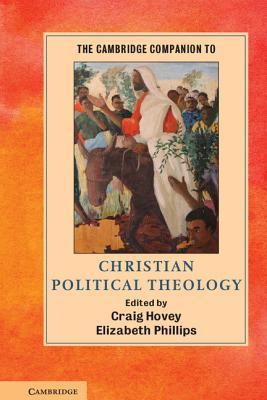
#50
The Cambridge Companion to Christian Political Theology
2015
Interest in political theology has surged in recent years, and this accessible volume provides a focused overview of the field. Many are asking serious questions about religious faith in secular societies, the origin and function of democratic polities, worldwide economic challenges, the shift of Christianity's center of gravity to the global south, and anxieties related to bold and even violent assertions of theologically determined political ideas. In fourteen original essays, authors examine Christian political theology in order to clarify the contemporary discourse and some of its most important themes and issues. These include up-to-date, critical engagements with historical figures like Augustine, Thomas Aquinas, and Immanuel Kant; discussions of how the Bible functions theopolitically; and introductions to key movements such as liberation theology, Catholic social teaching, and radical orthodoxy. An invaluable resource for students and scholars in theology, the Companion will also be beneficial to those in history, philosophy, and politics.
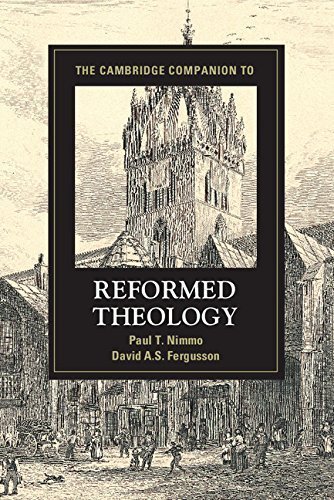
#51
The Cambridge Companion to Reformed Theology
2016
This Companion offers an introduction to Reformed theology, one of the most historically important, ecumenically active, and currently generative traditions of doctrinal enquiry, by way of reflecting upon its origins, its development, and its significance. The first part, Theological Topics, indicates the distinct array of doctrinal concerns which gives coherence over time to the identity of this tradition in all its diversity. The second part, Theological Figures, explores the life and work of a small number of theologians who have not only worked within this tradition, but have constructively shaped and inspired it in vital ways. The final part, Theological Contexts, considers the ways in which the resultant Reformed sensibilities in theology have had a marked impact both upon theological and ecclesiastical landscapes in different places and upon the wider societal landscapes of history. The result is a fascinating and compelling guide to this dynamic and vibrant theological tradition.
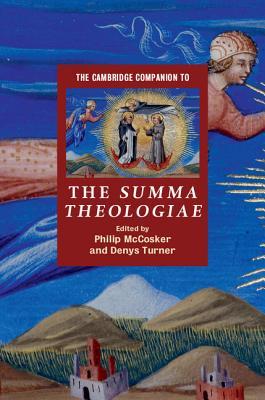
#52
The Cambridge Companion to the Summa Theologiae
2016
Arguably the most influential work of systematic theology in the history of Christianity, Thomas Aquinas' Summa Theologiae has shaped all subsequent theology since it was written in the late thirteenth century. This Companion features essays from both specialists in Aquinas' thought and from constructive contemporary theologians to demonstrate how to read the text effectively and how to relate it to past and current theological questions. The authors thoroughly examine individual topics addressed in the Summa, such as God, the Trinity, eternity, providence, virtue, grace, and the sacraments, making the text accessible to students of all levels. They further discuss the contextual, methodological, and structural issues surrounding the Summa, as well as its interaction with a variety of religious traditions. This volume will not only allow readers to develop a comprehensive multi-perspectival understanding of Aquinas' main mature theological work, but also promote dialogue about the vital role of the Summa in theology today.
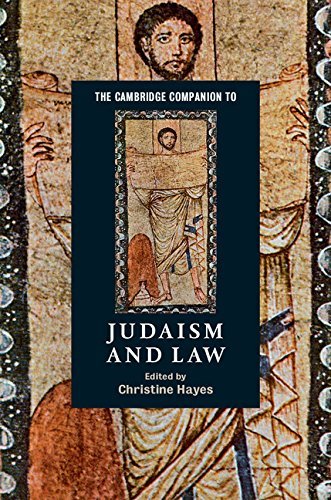
#54
The Cambridge Companion to Judaism and Law
2017
The Cambridge Companion to Judaism and Law explores the Jewish conception of law as an essential component of the divine-human relationship from biblical to modern times, as well as resistance to this conceptualization. It also traces the political, social, intellectual, and cultural circumstances that spawned competing Jewish approaches to its own 'divine' law and the 'non-divine' law of others, including that of the modern, secular state of Israel. Part I focuses on the emergence and development of law as an essential element of religious expression in biblical Israel and classical Judaism through the medieval period. Part II considers the ramifications for the law arising from political emancipation and the invention of Judaism as a 'religion' in the modern period. Finally, Part III traces the historical and ideological processes leading to the current configuration of religion and state in modern Israel, analysing specific conflicts between religious law and state law.
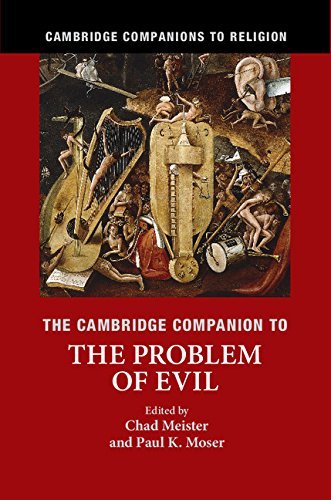
#55
The Cambridge Companion to the Problem of Evil
2017
For many centuries philosophers have been discussing the problem of evil—one of the greatest problems of intellectual history. There are many facets to the problem, and for students and scholars unfamiliar with the vast literature on the subject, grasping the main issues can be a daunting task. This Companion provides a stimulating introduction to the problem of evil. More than an introduction to the subject, it is a state-of-the-art contribution to the field which provides critical analyses of and creative insights on this longstanding problem. Fresh themes in the book include evil and the meaning of life, beauty and evil, evil and cosmic evolution, and anti-theodicy. Evil is discussed from the perspectives of the major monotheistic religions, agnosticism, and atheism. Written by leading scholars in clear and accessible prose, this book is an ideal companion for undergraduate and graduate students, teachers, and scholars across the disciplines.
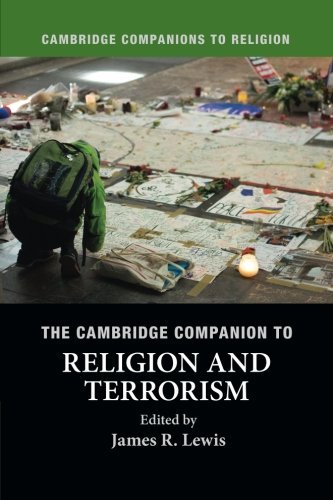
#56
The Cambridge Companion to Religion and Terrorism
2017
There is currently much discussion regarding the causes of terrorist acts, as well as the connection between terrorism and religion. Terrorism is attributed either to religious 'fanaticism' or, alternately, to political and economic factors, with religion more or less dismissed as a secondary factor. The Cambridge Companion to Religion and Terrorism examines this complex relationship between religion and terrorism phenomenon through a collection of essays freshly written for this volume. Bringing varying approaches to the topic, from the theoretical to the empirical, the Companion includes an array of subjects, such as radicalization, suicide bombing, and rational choice, as well as specific case studies. The result is a richly textured collection that prompts readers to critically consider the cluster of phenomena that we have come to refer to as 'terrorism,' and terrorism's relationship with the similarly problematic set of phenomena that we call 'religion.'
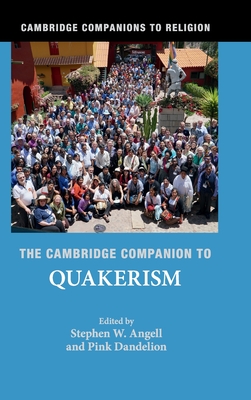
#57
The Cambridge Companion to Quakerism
2018
The Cambridge Companion to Quakerism offers a fresh, up-to-date, and accessible introduction to Quakerism. Quakerism is founded on radical ideas and its history of constancy and change offers fascinating insights into the nature of non-conformity. In a series of eighteen essays written by an international team of scholars, and commissioned especially for this volume, the Companion covers the history of Quakerism from its origins to the present day. Employing a range of methodologies, it features sections on the history of Quaker faith and practice, expressions of Quaker faith, regional studies, and emerging spiritualities. It also examines all branches of Quakerism, including evangelical, liberal, and conservative, as well as non-theist Quakerism and convergent Quaker thought. This Companion will serve as an essential resource for all interested in Quaker thought and practice.
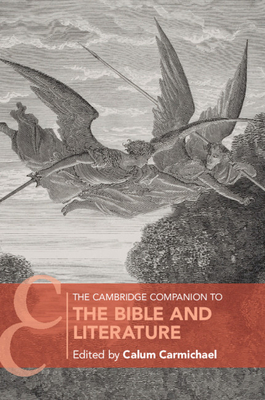
#60
The Cambridge Companion to the Bible and Literature
2020
This Companion volume offers a sweeping survey of the Bible as a work of literature and its impact on Western writing. Underscoring the sophistication of the biblical writers' thinking in diverse areas of thought, it demonstrates how the Bible relates to many types of knowledge and its immense contribution to education through the ages. The volume emphasizes selected texts chosen from different books of the Bible and from later Western writers inspired by it. Individual essays, each written specially for this book, examine topics such as the gruesome wonders of apocalyptic texts, the erotic content of the Song of Songs, and Jesus' and Paul's language and reasoning, as well as Shakespeare's reflections on repentance in King Lear, Milton's genius in writing Paradise Lost, the social necessity of individual virtue in Shelley's poetry, and the mythic status of Melville's Moby Dick in the United States and the Western world in general.
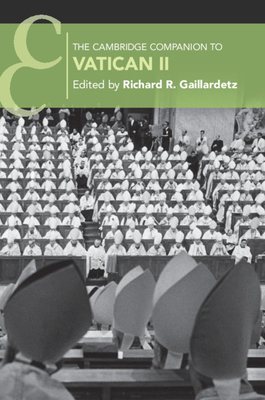
#61
The Cambridge Companion to Vatican II
2020
This Companion provides an accessible guide for those seeking to comprehend the significance of Vatican II for Catholicism today. It offers a thorough overview of the Second Vatican Council, the most significant event in the history of Roman Catholicism since the Protestant Reformation. Almost six decades since the close of the council, its teaching remains what one pope referred to as a 'sure compass' for guiding today's church. The first part of the Companion examines the historical, theological, and ecclesial contexts for comprehending the significance of the council. It also presents the key processes, as well as the participants who were central to the actual conduct of the council. The second part identifies and explores the central themes embedded in the council documents. The Companion concludes with a unique appendix intended to guide students wishing to pursue more advanced research in Vatican II studies.
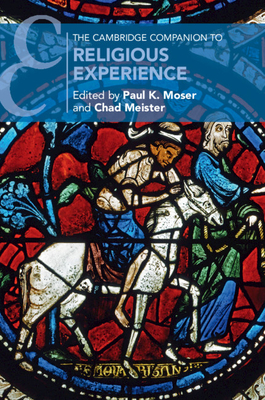
#62
The Cambridge Companion to Religious Experience
2020
For centuries, theologians and philosophers, among others, have examined the nature of religious experience. Students and scholars unfamiliar with the vast literature face a daunting task in grasping the main issues surrounding the topic of religious experience. The Cambridge Companion to Religious Experience offers an original introduction to its topic. Going beyond an introduction, it is a state-of-the-art overview of the topic, with critical analyses of and creative insights into its subject. Religious experience is discussed from various interdisciplinary perspectives, from religious perspectives inside and outside traditional monotheistic religions, and from various topical perspectives. Written by leading scholars in clear and accessible prose, this book is an ideal resource for undergraduate and graduate students, teachers, and scholars across many disciplines.
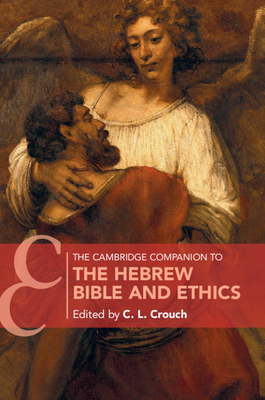
#63
The Cambridge Companion to the Hebrew Bible and Ethics
2021
The Cambridge Companion to the Hebrew Bible and Ethics offers an engaging and informative response to a wide range of ethical issues. Drawing connections between ancient and contemporary ethical problems, the essays address a variety of topics, including student loan debt, criminal justice reform, ethnicity and inclusion, family systems, and military violence. The volume emphasizes the contextual nature of ethical reflection, stressing the importance of historical knowledge and understanding in illuminating the concerns, the logic, and the intentions of the biblical texts. Twenty essays, all specially commissioned for this volume, address the texts' historical and literary contexts and identify key social, political, and cultural factors affecting their ethical ideas. They also explore how these texts can contribute to contemporary ethical discussions. The Cambridge Companion to the Hebrew Bible and Ethics is suitable for use in undergraduate and graduate courses in liberal arts colleges and universities, as well as seminaries.
#64
The Cambridge Companion to Jewish Theology
2020
This Companion offers an overview of Jewish Theology, an aspect of Judaism that is equal in importance to law and ethics. Covering the period from antiquity to the present, the volume focuses on what Jews believe about God and also about the relation of God to humans and the world. Part I covers exciting new research in Jewish biblical and rabbinic theology, medieval philosophy, Kabbalah (Mysticism), and Liturgy. Part II turns to modern theology with an exploration of works by leading figures, such as Abraham I Kook, Franz Rosenzweig and Emmanuel Levinas, as well as the relation of theology to issues such as Feminism, the Holocaust, and the relation of Judaism to other world religions. In the final section, the Companion explores how the insights of analytic philosophy have been integrated with Jewish theology.
#66
The Cambridge Companion to American Catholicism
2020
This Companion provides a comprehensive overview of American Catholicism's historical development and distinctive features. The essays - all specially commissioned for this volume - highlight the inner diversity of American Catholicism and trace the impact of American Catholics on all aspects of society, including education, social welfare, politics, and intellectual life. The volume also addresses topics of contemporary concern, such as gender and sexuality, arts and culture, social activism, and the experiences of Black, Latinx, Asian-American, and cultural Catholics. Taken together, the essays in this Companion provide context for understanding American Catholicism as it is currently experienced, and help to situate present-day developments and debates within their longer trajectory.
Author
Brian R. Hamnett
Author · 4 books
Brian Hamnett is a Research Professor in History Emeritus at the University of Essex, where he taught from 1990 until his retirement. Hamnett studied as an undergraduate and postgraduate at Peterhouse, Cambridge, and then became Assistant Professor in History at the State University of New York at Stony Brook, USA, from 1968 to 1972. After a period at the University of Reading (1972-74), he taught at the University of Strathclyde (1974-90) where he became a Reader in 1989. From 1990-95 he was joint Editor of the Bulletin of Latin American Research, and has been a member of the Editorial Board of the Journal of Latin American Studies and of the International Advisory Boards of the European Review of Latin American and Caribbean Studies, and is also a Fellow of the Royal Historical Society and Correspondent of the Academia Mexicana de la Historia. He was Director of the Latin American Centre (1994-97). In March 2010, Professor Hamnett was awarded a Banco Nacional de Mexico prize for Foreign Scholar working on Mexican Regional History.